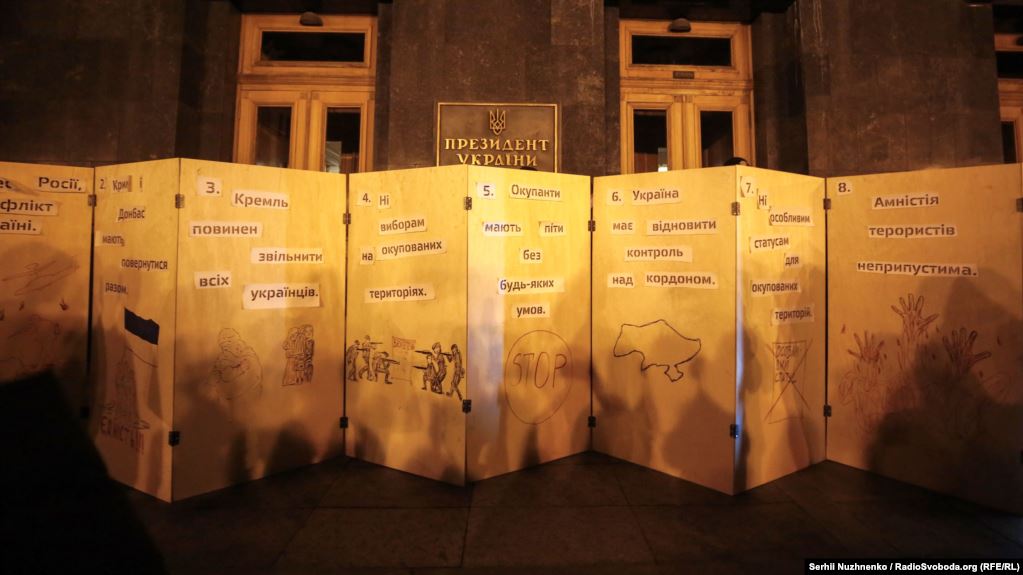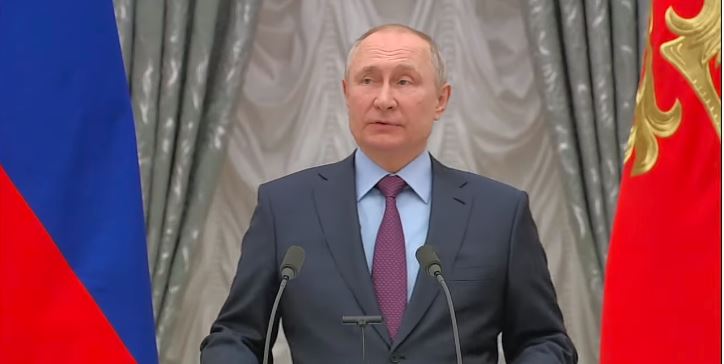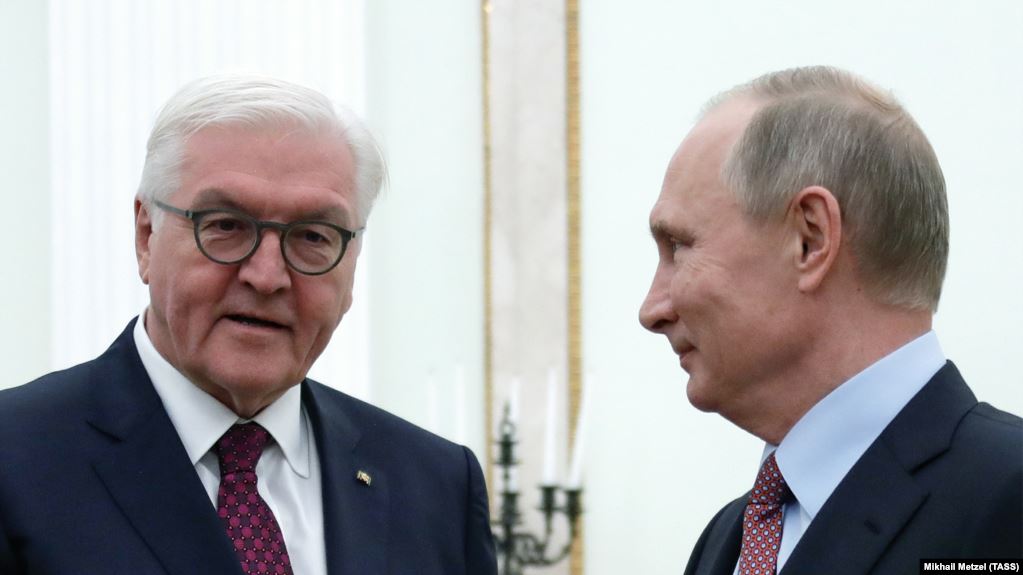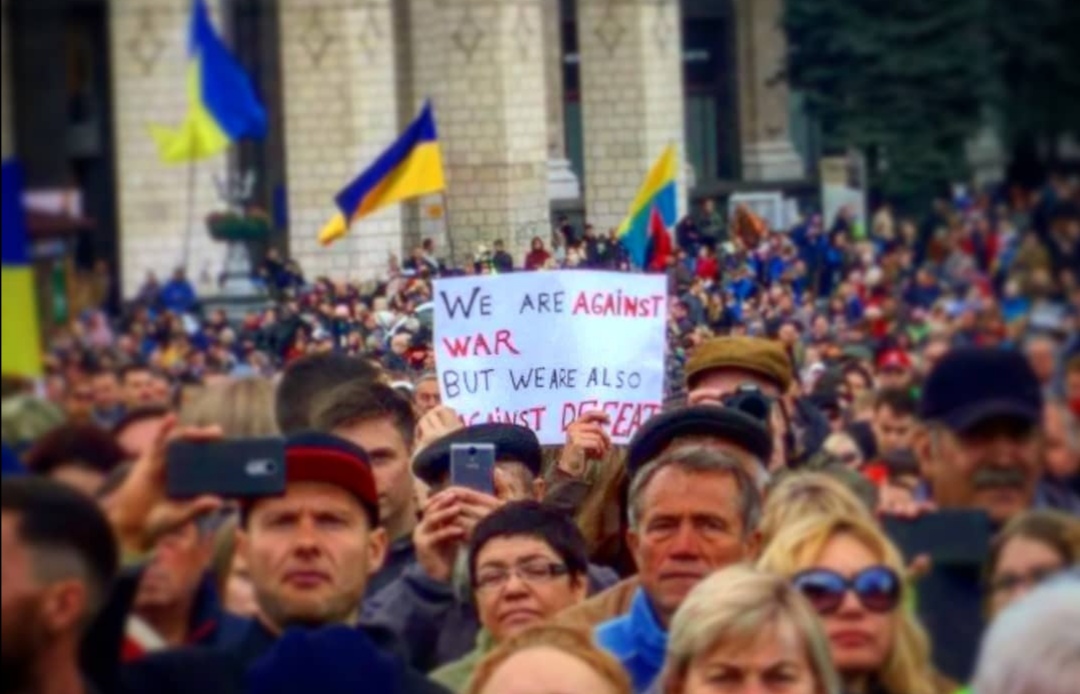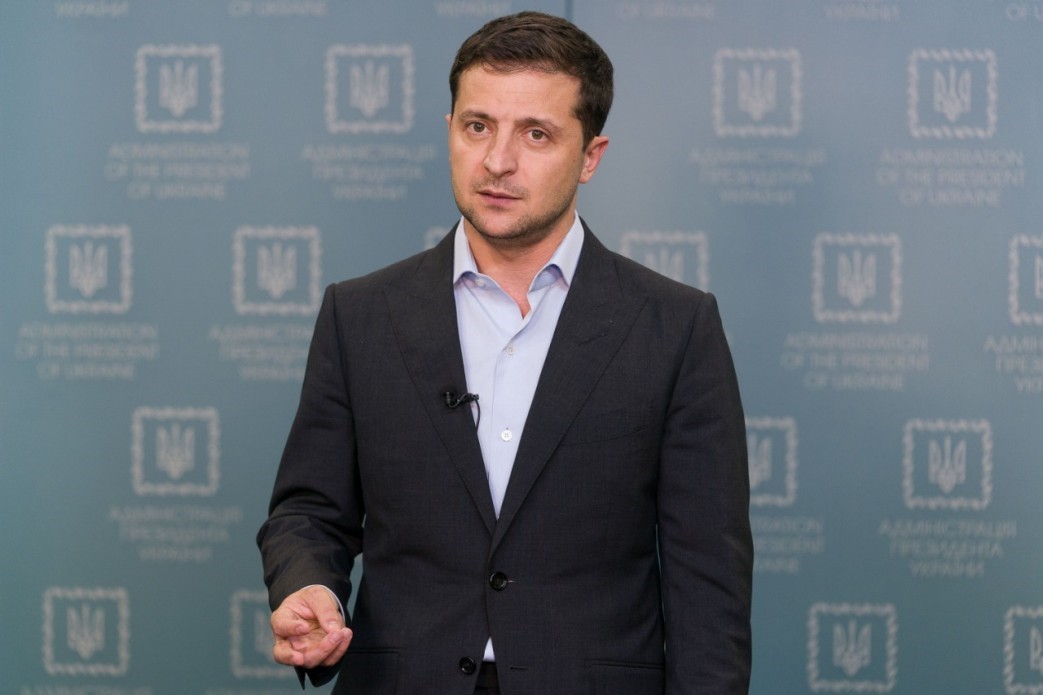"Steinmeier's formula" has become a hot topic in Ukraine. This suggestion on implementing the Minsk peace accords voiced by the German Foreign Minister Frank-Walter Steinmeier in 2015 has recently resurfaced after President Zelenskyy's election.
Tensions especially grew on 18 September 2019, when conflicting messages arose during a meeting of the trilateral contact group in Minsk, a group of representatives from Ukraine, Russia, and the OSCE. Foreign Minister Vadym Prystaiko informed that Ukraine had given its agreement to Steinmeier's formula at a meeting of the Normandy Four, the meeting of senior representatives of four countries – Germany, Russia, Ukraine, and France, on 2 September. But Ukraine's representative to the Trilateral contact group told that the formula was not recorded in writing at the meeting in Minsk, despite the instructions of the Normandy Four.
According to Prystaiko, a "technical misunderstanding" regarding the formula arose in the Trilateral contact group, and Ukraine's representative had some "remarks."
While President Zelenskyy is keen to act upon his pre-election promise of quickly ending the war in Donbas, many Ukrainians suspect that Ukraine's capitulation to Russia might be the price.
- Read more: Can Zelenskyy “stop the war in Donbas” and how will the Steinmeier formula affect Ukraine? An FAQ
What is Steinmeier's formula
The so-called Steinmeier formula is an idea voiced by then German Foreign Minister Frank-Walter Steinmeier in fall 2015. After the Minsk accords were signed in September 2014 and February 2015, a series of events should have happened: a ceasefire and withdrawal of troops, local elections should have been held on the occupied territories in accordance with Ukrainian legislation with a subsequent special status for the regions. All prisoners and POWs in Donbas should have been freed, all foreign (Russian) troops should have been withdrawn. Ukraine should have provided amnesty to militants who fought against the Ukrainian government, sans those having committed grave war crimes. In exchange, Ukraine should have received control over the border.
However, a ceasefire was not established and Ukrainian troops and civilians kept dying daily. Thus, Steinmeier proposed that if OSCE monitors verified that the elections in ORDLO (territories of Donbas and Luhansk oblasts uncontrolled by the Ukrainian government) were held without violations, then the Ukrainian “law on special status” giving autonomy to these areas would come into immediate effect. This proposal never caught on.
According to Roman Bezsmertnyi, Ukraine's former representative to the Minsk process, Steinmeier's formula was brought back to life after on 12 July 2019 Vadym Prystaiko attended a meeting of advisors of the heads of states of the Normandy Four. Russia now insists on this formula: on 27 August 2019, Russian Foreign Minister Sergei Lavrov declared that one of the conditions for the next summit of the Normandy Four would be to have Steinmeier's formula recorded in writing.
The problem with the formula is that it can be interpreted in many ways. Many Ukrainians accuse Russia of trying to yank the elections of the territories and their "special status" out of the wider Minsk context and ignore the safety components, and, most importantly - Ukraine's control over the border. As well, Russia is being accused of wanting to legalize the rule of the militants it is backing and give the now-occupied territories a "special status."

Vadym Prystaiko told in an interview with European Pravda on 20 September 2019 that the advisors of the Normandy Four agreed not on this formula per se on 2 September, but another "exact formulation." Here is the latest version of this formulation with the parts setting it apart from Steinmeier's version bolded out:
This Law continues to apply on an ongoing basis if, in accordance with established practice, the OSCE ODIHR Final Report concludes that early local elections in certain areas of Donetsk and Luhansk oblasts were generally conducted in accordance with OSCE standards and Ukrainian legislation, answering the question agreed in the Normandy format approved by the Tripartite Contact Group and forwarded by Ukraine at its invitation and by the OSCE Chairman-in-Office to the ODIHR Director."
So, the new details include a requirement for the elections in ORDLO to be held in accordance with the Ukrainian Constitution and a special law for ORDLO elections, as well as refers to a question agreed in the Normandy format. Speaking to Euromaidan Press, European Pravda editor Serhiy Sydorenko clarified that this probably means an answer to the vague question of whether the elections correspond to the will of the Ukrainian people. This criterion was indicated by Minister Prystaiko in the interview with Mr. Sydorenko.
Although Prystaiko stressed that the "new formulation" does not instruct who should control the Ukrainian-Russian border at the time of elections - Ukraine, the Russian-separatist troops, or a third force - nor specifies whether these troops would be controlling the territory, these are exactly the questions determining whether Steinmeier's formula would mean that Ukraine de-facto recognizes the occupation authorities and their sovereignty over ORDLO.
For years during the Minsk process, Ukraine had insisted that Donbas be demilitarized and deoccupied and its control of the Ukrainian-Russian border be restored before the political parts of the Minsk agreements could be implemented. However, the security component is left out of the equation of both Steinmeier's formula and the "new formulation" adopted in the Normandy format.
Public protests against "Ukraine's capitulation"
"The Normandy conspiracy: state treason!" protest at the President's Office in Kyiv on 19 September 2019. Photos: rbc.ua, radiosvoboda.org, ukrinform.ua
The dangers that the application of Steinmeir's formula carries were protested by civil society and experts alike.
A protest titled "The Normandy conspiracy: state treason!" gathered hundreds at the President's Office in Kyiv on 19 September. The demands included:
"...not to sign capitulation agreements with Putin, by all means to not implement Steinmeier's formula, to not agree to legalize the pro-Russian autonomy of Donbas and amnesty for militants. We demand that the war in Donbas be resolved in this order:
- a full cessation of military actions.
- the withdrawal of Russian troops, demilitarization of illegal formations;
- control of the border to be given to Ukraine or UN peacemakers and OSCE with it being further handed over to Ukraine;
- Only after this can elections be held in according to Ukrainian law."
As well, the public appeal "We will not allow capitulation!" signed by such dignitaries as former Foreign Ministers Volodymyr Ohryzko and Bohdan Tarasiuk, foreign deputy Foreign Minister Danylo Lubkivskyi, former Ecology Minister Heorhiy Filipchuk, and many other politicians, experts, journalists, and activists, lays out 10 demands for Zelenskyy. We have translated it in full.
At a time when our warriors are now defending Ukraine from Russia's armed aggression, the highest responsibility for the fate of Ukraine rests with the highest leadership of the state, in particular, President Volodymyr Zelenskyy. As Head of State and Commander-in-Chief, he should be aware that his stance on ending Russian aggression should not be determined by political considerations and cannot ignore the colossal price paid by the Ukrainian nation for its independence. The president should understand that in the Ukrainian-Russian relations there was not a situational conflict, but another attempt of Russia to destroy Ukraine as an independent state.
That is why we, community leaders, scholars, experts, volunteers and volunteers, are concerned about President Zelensky's statement of 12 September 2019 that the Steinmeier formula will be discussed at a meeting of the leaders of the 'Normandy Four' states. This formula is known to provide for the holding of elections in the Ukrainian occupied territories and to give them a special status. The use of the aforementioned formula, which is based on the Ukraine-imposed Minsk Agreements, brings to the brink of negotiation the issue of Crimean occupation and Russia's responsibility as an aggressor state.
Agreeing with this or any similar formula will mean the capitulation of Ukraine to the Kremlin. Peace with Russia cannot be reached at any cost. Such a peace would lead to an even larger war, more casualties and humiliation of the Ukrainians, and would destroy the independent statehood of Ukraine. There are many examples in the history of Ukrainian-Russian relations where concessions to the Kremlin leadership have encouraged the aggressor to make even greater demands.
Ukraine's desire for a just peace is incompatible with the aggression of the aggressor and must be based on generally recognized rules of international law. Based on this, the basis for Ukraine's national position in the negotiations should be:
1. Russia launched and continues armed aggression against Ukraine, occupying the Crimea and parts of the Donetsk oblast and the Luhansk oblast. As a result of Russian aggression, tens of thousands of Ukrainians were killed or maimed, and millions of our citizens were forced to flee their homes or wander under occupation. Ukraine suffers not from an 'internal conflict' but from Russia's armed aggression and its aftermath.
2. The liberation of certain regions of Donetsk and Luhansk oblasts is inseparable from the Crimean occupation. In Crimea and the Donbas, the aggressor is one, the nature of aggression is one, the violations of international law and human rights and freedoms are the same. All territories occupied by Russia must be returned to Ukraine together and at the same time.
3. The Kremlin must release all Ukrainians who are illegally held in Russia and the territories it occupies.
4. Elections may not be held in the occupied territories either to local authorities or to the Verkhovna Rada of Ukraine.
5. All Russian occupation forces should leave the Ukrainian territory without any conditions.
6. Ukraine shall regain full control of the entire line of the Ukrainian-Russian State Border.
7. The Ukrainian territories liberated by Russia cannot have any special status that would call into question the unitary structure of Ukraine.
8. Russia is responsible for aggression against Ukraine and the occupation of Ukrainian territories.
9. Ukraine must demand full reparation for the damage caused by aggression and occupation and the punishment of perpetrators of international criminal offenses.
10. Peaceful arrangements cannot be reached at the cost of Ukraine's rejection of the Euro-Atlantic civilization choice it has already made and the course of membership in NATO and the European Union.
All these provisions should be key elements of Ukraine's negotiating position in any format. We call upon the President of Ukraine to take this position. The Head of State must be aware that the Ukrainian people will not accept the humiliating peace and will resist any attempt to impose a capitulation on the Kremlin.
Kyiv, 17 September 2019"
Holding elections in Donbas without capitulation?
There are ways to make Steinmeier's formula less harmful for Ukraine, a European Pravda article outlines. Ukraine could - and should insist - on the implementation of security demands before all others.
Importantly, the "new formulation" Prystaiko told about requires that the elections be held in accordance with the Ukrainian Constitution and a special law on elections in the region. Standards of such elections have already been enumerated in amendments adopted in 2015 to the law on the "special status" of ORDLO. It includes Ukrainian and international election observers and their safety, the withdrawal of all illegal armed forces, the participation of all willing political parties, freedom of agitation, access to Ukrainian media for the residents, the work of Ukrainian media on ORDLO territory, voting rights for IDPs who fled ORDLO. These requirements, and the fact that they were mentioned in a framework document, greatly improve Ukraine's negotiating position.
Last, Ukraine can insist that the amnesty process for militants be held before ORDLO elections, as otherwise war criminals could be elected to leadership positions. This means that Ukrainian authorities, police, and courts should have some sort of control over the now-occupied region - and operate for a sufficient period of time to assess who had committed grave crimes.
This all takes time, and the prospective success is questionable at best. However, it's undeniable that Zelenskyy's promises to quickly establish peace in Donbas, so believed by his electorate and western officials tired of the Russian-Ukrainian war, are impossible to achieve without Ukraine's capitulation.





